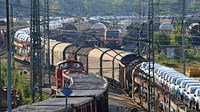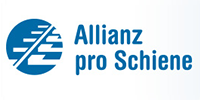
The German Pro-Rail Alliance and the rail sector association VDB have said that the draft federal transport infrastructure plan is “disappointing in term of climate and transport policies” and have called on the Federal Ministry for Transport to provide a clear timetable for pivotal rail projects, which the draft has so far classified as 'on hold'.
On the whole, the new federal transport infrastructure plan is not particularly well suited to the 21stcentury, criticised both organisations, who called for a fundamental rethink. According to the draft plan, 55 percent of state funding for upgrading infrastructure and new construction will be spent on the road network by 2030, whereas only 40 percent will be spent on upgrading the rail network and on new rail construction projects. “This means that the government will miss its own target of strengthening transport on the railways.”, criticised the VDB and the Pro-Rail Alliance. “Rail’s positive impact on the climate will therefore be sold short in the coming decades. The federal transport infrastructure plan for 2030 is still biased towards the roads. The government has to make some adjustments in order to enable a new form of environmentally friendly transport,” was the organisations’ verdict.
Upgrades for long freight trains on hold
The organisations support the approach in the federal transport infrastructure plan to prioritise rail network maintenance and focus on alleviating bottlenecks. In addition, putting the emphasis on investing in large-scale, significant projects using funds available for upgrades and new construction was fundamentally correct, said the managing director of the Pro-Rail Alliance, Dirk Flege, on Tuesday in Berlin.” However, we cannot understand why regional rail transport has largely been neglected, whereas on the road network, a lot of funding is once again available for projects that are of local importance.” The newly introduced on-hold category ‘potential requirements' for railway projects is also not very convincing. “This on-hold category contains pivotal projects such as making the network accessible for 740m freight trains or alleviating bottlenecks at important major junctions.” The organisations once again demanded a rapid evaluation and an ambitious timetable for realising the projects.
Implementation of improvements to digital efficiency too slow
Moreover, the organisations pointed out that upgrading the capacity of Germany’s infrastructure with the introduction of new signalling and control systems must be actively pushed through. “By introducing the European Rail Traffic Management System (ERTMS) it will become possible to use existing rail infrastructure much more efficiently,” said VDB managing director Ben Möbius. “However, progress in implementing digital upgrades to Germany’s rail network is too slow.” Whereas Denmark, for example, will have replaced its entire signalling system by 2021 (largely to ETCS level 2), Germany is dragging its feet in implementing the new technology, even on major routes such as the 'corridor A' from Rotterdam to Genoa. A programme for implementing the ERTMS, electronic interlocking and making digital upgrades to level crossings is required to push through the rapid digitalisation of the infrastructure. It must closely accompany the federal transport infrastructure plan. In the 21st century, improving the infrastructure means construction and upgrading technology must go hand in hand.
About Allianz pro Schiene
Allianz pro Schiene e.V. (The Pro-Rail Alliance) (www.allianz-pro-schiene.de) is the German alliance for the promotion of environmentally friendly and safe rail transport. It is an independent umbrella organisation that unites non-profit organisations and the commercial sector for the purpose of lobbying on behalf of the railways.




Comments
There are no comments yet for this item
Join the discussion